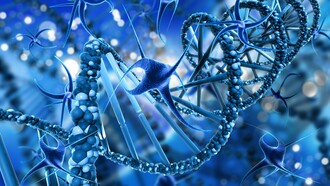Technology has always played a key role in our lives, but thanks to the increasing accessibility of smart devices and web-based curriculum, its usage is now more common than ever. The advancement of current technologies and the computational power of fantastically advanced equipment play a significant impact on education nowadays.
Artificial Intelligence is one of these blooming technologies that is being used in education to make an enormous change. Thanks to AI in education, teachers, students, parents, and of course educational institutions themselves now conceive education from an entirely new viewpoint. However, despite its popularity, AI, furthermore, has its own drawbacks.
In this article we will discuss the impact of how the spread of AI can impact your child's education since many schools around the globe have already adopted it. But what exactly is Artificial Intelligence in Education (AIED)? Will the positive impressions of artificial intelligence really outweigh its disadvantages in the field of education? Well, to answer these questions, we must deal with the advantages and disadvantages of artificial intelligence in education, which we will discuss in this article; therefore, stay with us until the end of this article.
The definition and advantages of artificial intelligence in education (AIED)
Simulating human vision, decision-making, and other processes, AI, is a strategy for employing computers and other technologies to complete tasks and act like a human. To put it put in other words, AI refers to the high-level pattern recognition and mimicking human behavior that robots engage in. Since the computers can learn and advance over time, especially when handling large, complicated datasets, machine learning-based AI for education is more successful.
In the first place, AI grades papers and essays considerably faster than humans can. Free from schedule-bound, time-consuming obligations, teachers are able to spend more time on closely interacting with students to develop their analytical and critical thinking skills. This allows the creativity and empathy needed to advance learning to the next level. With this modification, instructors will have to generate advanced skills.
Machine learning-based AI, furthermore, can monitor student behavior and develop models that accurately predict students' performance. The technique has previously proven to show excellent results when applied to difficult situations that aren't constrained by rules, including evaluating students' written responses or analyzing huge, complicated datasets. Students who receive immediate feedback are better able to identify their mistakes and improve themselves.
Nowadays, machine-based artificial intelligence is employed extensively in education, and companies that offer testing services like Pearson and the Education Testing Service assess essays using natural language processing. Massive open online courses (MOOCs) like Coursera and Udacity, which allow for online participation by anyone, have also incorporated AI applications in education for grading and essay analysis.
Concerns regarding AI implementation in schools
It's important to take into account the value of interpersonal relationships and the fundamentally human nature of education. Simply stated, AI in education will not be able to replace educators.
Experts also point to the partiality of AI as a disadvantage. The results of a massive number of tests will be employed to generate machine-generated scores. This issue briefly highlights the fact that test results may actually reflect a lack of opportunity rather than a lack of ability. And Machine scoring will be unable to distinguish between these differences.
Conclusion
As a consequence of both its benefits and disadvantages, artificial intelligence (AI) is expected to have a tremendous impact on education and has the power to revolutionize it. In order to guarantee that artificial intelligence in education satisfies actual demands, it is crucial for educators, learning researchers, and policymakers to collaborate with computer scientists and AI developers.
We need to be prominent and not restrict our vision to the employing of current technologies. The lure of innovatory technologies should not, however, tempt us. Despite the fact that it can greatly simplify the world, AI, should be carefully considered before being employed for human convenience or in the hunger to play God, as this might lead to man's self-destruction.















